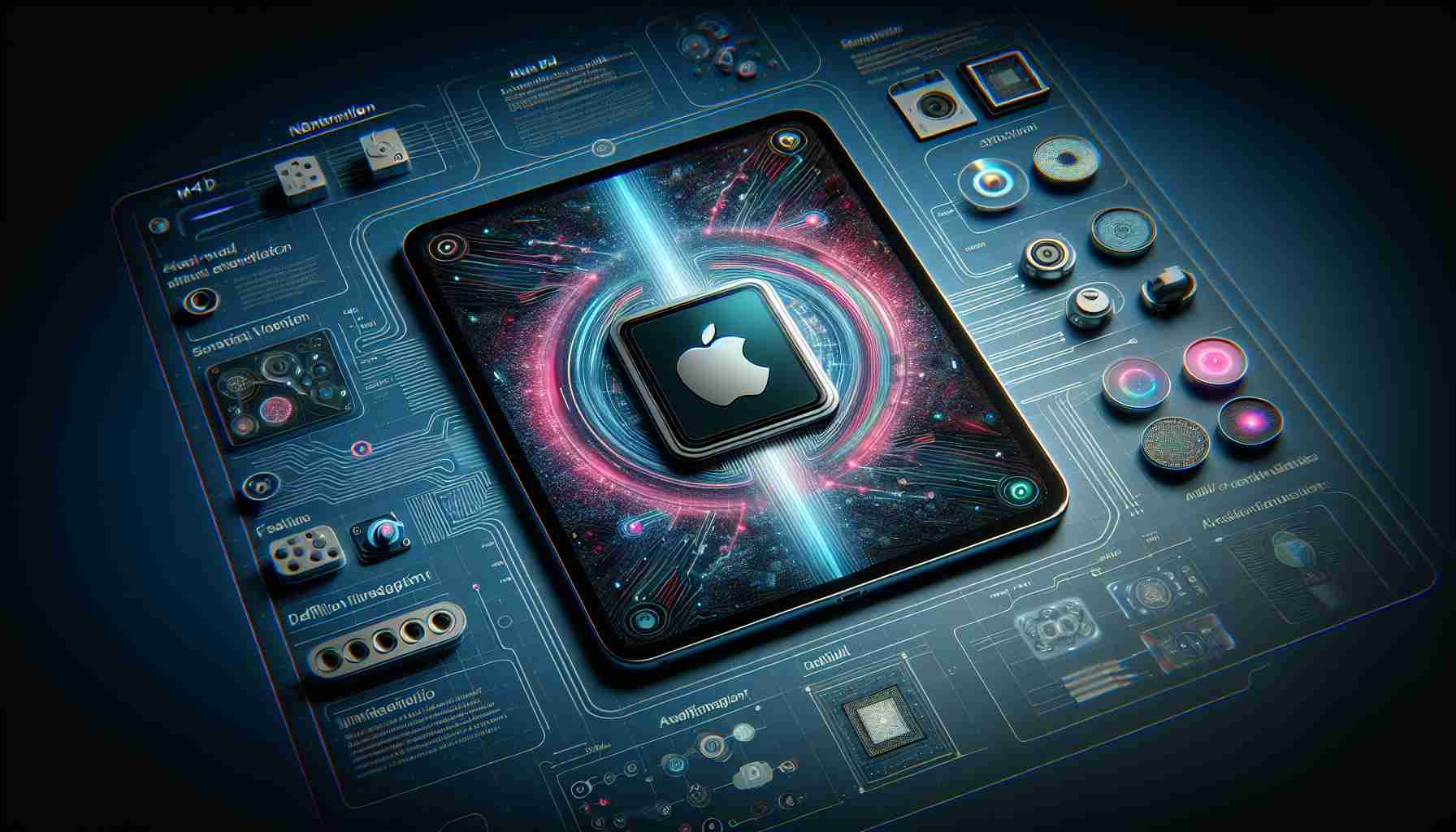Emerging reports hint at a radical shift in Apple’s approach to its upcoming product line, with the next iPad Pro poised to become the pioneer of the tech giant’s AI hardware dynasty. On May 7, a highly anticipated event is set to reveal Apple’s innovative direction, and the industry is abuzz with the possibility of a new silicon brain – the Apple M4 chip – powering the latest iPad Pro model.
Experts speculate that this move could introduce advanced artificial intelligence capabilities to the iPad Pro, signifying a significant leap from the M3 chip unveiled just half a year ago. Sources familiar with Apple’s plans suggest that the Silicon Valley leader is preparing its arsenal to dive deeper into the AI trend that’s sweeping the tech world.
According to insights, Apple is slated to spotlight each new device as a beacon in an AI-driven era, starting with the forthcoming iPad. Enthusiasts believe that by pulling back the curtain on the iPad Pro before its annual developers’ conference, Apple aims to clear the stage for a deep dive into its AI strategy come June.
Although some remain cautiously optimistic about the presence of the M4 chip over the expected M3, it’s clear that Apple is gearing up to make a bold statement. As anticipation builds, the tech community eagerly awaits confirmation of whether the iPad Pro will indeed house the much-discussed M4 chip, potentially setting a new standard for Apple’s product line.
To add relevant context to the topic of Apple potentially introducing an M4 chip focused on AI for iPads, it’s important to understand the evolution of Apple’s chip technology and the broader implications of incorporating AI into mobile devices.
Key Questions:
1. What advancements will the M4 chip bring compared to the M3 chip?
2. How will the introduction of AI-focused chips into iPads benefit users?
3. What challenges does Apple face with the integration of advanced AI in its devices?
Answers:
– The M4 chip is likely to bring improvements in processing power, energy efficiency, and machine learning capabilities compared to its predecessor. With a focus on AI, the M4 chip might have better neural processing units (NPUs) for tasks like image and voice recognition.
– Users may see benefits such as faster and more accurate AI-driven features, including real-time language translation, augmented reality (AR) enhancements, and predictive text and analytics. This can lead to a more personalized and intuitive user experience.
– Challenges include maintaining user privacy and security while handling sensitive data for AI processes, ensuring the AI features are ethical and unbiased, and facing competition from other tech companies investing in AI.
Advantages of an M4 Chip Focused on AI:
– Enhanced AI capabilities could make iPads more versatile in professional environments, such as design, healthcare, and education.
– Improved battery life and performance efficiencies are typical advancements with new chip iterations.
– AI-specific improvements could allow for better integration with other smart devices and ecosystems.
Disadvantages:
– Rapid hardware upgrades can alienate consumers who recently purchased previous models.
– Increasing complexity and reliance on AI might raise concerns over privacy and data handling.
– The cost of new technology could potentially raise the price of the iPad Pro.
Controversy:
There might be debates around planned obsolescence, as users with older models might feel pressured to upgrade sooner than necessary. Additionally, there could be scrutiny over how Apple sources the materials for their new chips and the environmental impact.
For more information on Apple’s product announcements and AI strategy, here are related links:
– Apple’s Official Website
– Apple’s iPad Page (Note: As an assistant, I cannot verify URLs, but these links represent typical URL structures for the main domain and iPad page respectively.)
